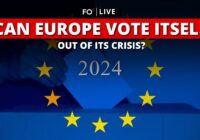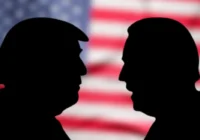In June, citizens across Europe went to the polls to elect a new European Parliament. Many analysts had warned of a sharp right-wing turn in voting ahead of the elections, but the reality was less dramatic. Still, the European Parliament elections indicated a shift. The zeitgeist has gone conservative. Progressive parties lost and radical right parties made gains, while the strategic winner of the elections has been center-right parties. Europe also saw the re-election of Ursula von der Leyen, the Commission President. She is up against a difficult task. Political fragmentation across the EU Parliament threatens to complicate policymaking.
Both global and domestic issues defined the election
The European election campaign is better understood as 27 individual campaigns rather than one common one. Campaigns typically focused more on domestic rather than EU-wide issues. This year, in several countries such as Germany, voters used the European elections to express unhappiness with the policies of the parties forming the current national government.
Climate change had dominated the last European election campaign in 2019 when school strikers, inspired by the young Swedish activist Greta Thunberg, brought the topic to the headlines. This time around, climate policy was hardly discussed. Instead, Russia’s full-scale invasion of Ukraine in 2022 brought the topic of security and defense to the top of the agenda. In addition, domestic issues like the rising cost of living, energy prices and inflation took precedence amongst voters.
Concerns over immigration likewise played a big role. This is not a new development, as immigration has been a major topic already for the last decade. Anti-immigrant rhetoric was used in a lot of countries, including in those in which there is actually not a lot of immigration, such as the Czech Republic.
The center-right has risen in the ranks
Domestic issues such as the ones above ultimately garnered intense support for far-right parties in the EU elections. However, despite the gains of far-right parties, the coalition of the center parties continues to hold a majority of seats in the EU Parliament. There has been a shift to the right, but overall the result of the European elections shows more continuity than disruption. This came as a relief to those predicting a far-right sweep of Parliament.
The European People’s Party Group (EPP), a center-right group bringing together Christian Democrats and conservatives, emerged as the clear winner of the election. In total, the group comprises 188 Members of the European Parliament (MEPs), or slightly more than 25% of seats. The Socialists and Democrats (S&D) remained largely stable, winning 136 seats. As recorded in the outgoing 2019 Parliament mandate, both parties continue to be the two largest groups in the European Parliament.
But the liberal Renew Group, which came in third in 2019, only won 77 seats and is now the fifth largest group after the extreme-right Patriots for Europe (84 seats) and the radical right Conservatives and Reformists (78 seats). Along with the Liberals, the other big loser of the elections were the Greens, who are now only the sixth biggest group with 53 members. Further, The Left in the European Parliament group and the extreme-right Europe of Sovereign Nations group comprise 46 and 25 seats respectively.
It is likely that the problem of the far-right on the European level will not play out in the European Parliament, but rather in the European Council, which assembles the heads of states and governments. Past mandates show that the far-right is a very incoherent bloc, especially when it comes to foreign and security policy. Internal disagreements make it difficult for the far-right to have any real influence on policy.
Already in the last few years, Viktor Orbán from the right-wing populist party Fidesz has often acted as a spoiler, or an obstruction, towards coherent policy. He has made it very difficult for EU leaders to find agreements, particularly when it comes to supporting Ukraine. As more far-right parties join governments at the national level across Europe, the problem of fractured policies is only likely to increase. Creating a solution to this problem falls on the shoulders of Ursula von der Leyen, who won another mandate as the EU Commission President.
Von der Leyen faced a challenging re-election
Despite the fact that the EPP, von der Leyen’s party family, emerged as the strongest force, the re-election of Ursula von der Leyen was by no means a given. In order to become Commission President, a candidate must not just be nominated by the Council comprising the EU heads of state and government, he or she must also secure a majority of MEPs in the European Parliament.
In 2019, the lead candidate of the EPP had been German Manfred Weber. But in the aftermath of the elections, some heads of state expressed concern with his nomination, pointing to his lack of executive experience. Instead, the Council nominated Ursula von der Leyen in a move that came as a surprise to everyone. She went on to secure a very narrow majority in the European Parliament, winning just 383 votes in a secret ballot — only nine more than the required minimum.
This time around, heads of state and government agreed on the nomination of Ursula von der Leyen relatively swiftly. As part of a package deal that included Socialists and Liberals, the Council further agreed on the nomination of the Portuguese António Costa as President of the European Council and the Estonian Kaja Kallas as High Representative for Foreign Affairs and Security Policy.
Political fragmentation will create a challenge
The real challenge von der Leyen faced was not the nomination — the problem lay in securing support from the European Parliament. The combined majority of EPP, S&D, and Renew, the traditional coalition of the center parties, is much smaller than in the previous mandate and several MEPs from those three groups explicitly stated that they were not going to vote for her. Von der Leyen faced a political conundrum — should she reach out to the radical-right Conservatives and Reformists, angering Socialists and Liberals? Or should she reach out to the Greens, angering her own EPP, which had turned against several Green policies during the last mandate?
In the end, von der Leyen pulled off the perfect balancing act. She managed to bring a majority of Greens to her side without turning her own party against her. In the speech that laid out her plans as Commission President, von der Leyen included promises to a lot of different groups. Ultimately, she was confirmed with 401 votes in favor.
In her last term, Ursula von der Leyen significantly strengthened the role of the Commission, shaping the EU’s response to the Covid-19 pandemic and the Russian invasion of Ukraine. In her second term, she seeks to continue this work, this time with a special focus on bolstering the Commission’s role in the realm of defense, economic security, and economic competitiveness.
But the next five years are unlikely to be smooth sailing. Europe’s changing political landscape will make her job harder. In the Parliament, the increasing political fragmentation will make coalition-building more difficult. An increasing amount of legislation will likely need to pass with ad-hoc coalitions that focus on specific issues instead of passing legislation through the traditional grand coalition of EPP, S&D, and Renew.
Henry Kissinger supposedly once asked, “Who do I call when I want to call Europe?” For now, this question seems answered. National leaders like French President Emmanuel Macron and German Chancellor Olaf Scholz have been weakened by the European election results, with their parties or coalitions suffering heavy losses. Instead, it is Ursula von der Leyen who has emerged with strength and confidence from the European Parliament election, ready to take on a leadership role as chief of the European Commission once more. Yet, the term ahead of her will be a challenging one.
[Cheyenne Torres edited this piece.]
The views expressed in this article are the author’s own and do not necessarily reflect Fair Observer’s editorial policy.
Support Fair Observer
We rely on your support for our independence, diversity and quality.
For more than 10 years, Fair Observer has been free, fair and independent. No billionaire owns us, no advertisers control us. We are a reader-supported nonprofit. Unlike many other publications, we keep our content free for readers regardless of where they live or whether they can afford to pay. We have no paywalls and no ads.
In the post-truth era of fake news, echo chambers and filter bubbles, we publish a plurality of perspectives from around the world. Anyone can publish with us, but everyone goes through a rigorous editorial process. So, you get fact-checked, well-reasoned content instead of noise.
We publish 2,500+ voices from 90+ countries. We also conduct education and training programs
on subjects ranging from digital media and journalism to writing and critical thinking. This
doesn’t come cheap. Servers, editors, trainers and web developers cost
money.
Please consider supporting us on a regular basis as a recurring donor or a
sustaining member.
Will you support FO’s journalism?
We rely on your support for our independence, diversity and quality.








Comment